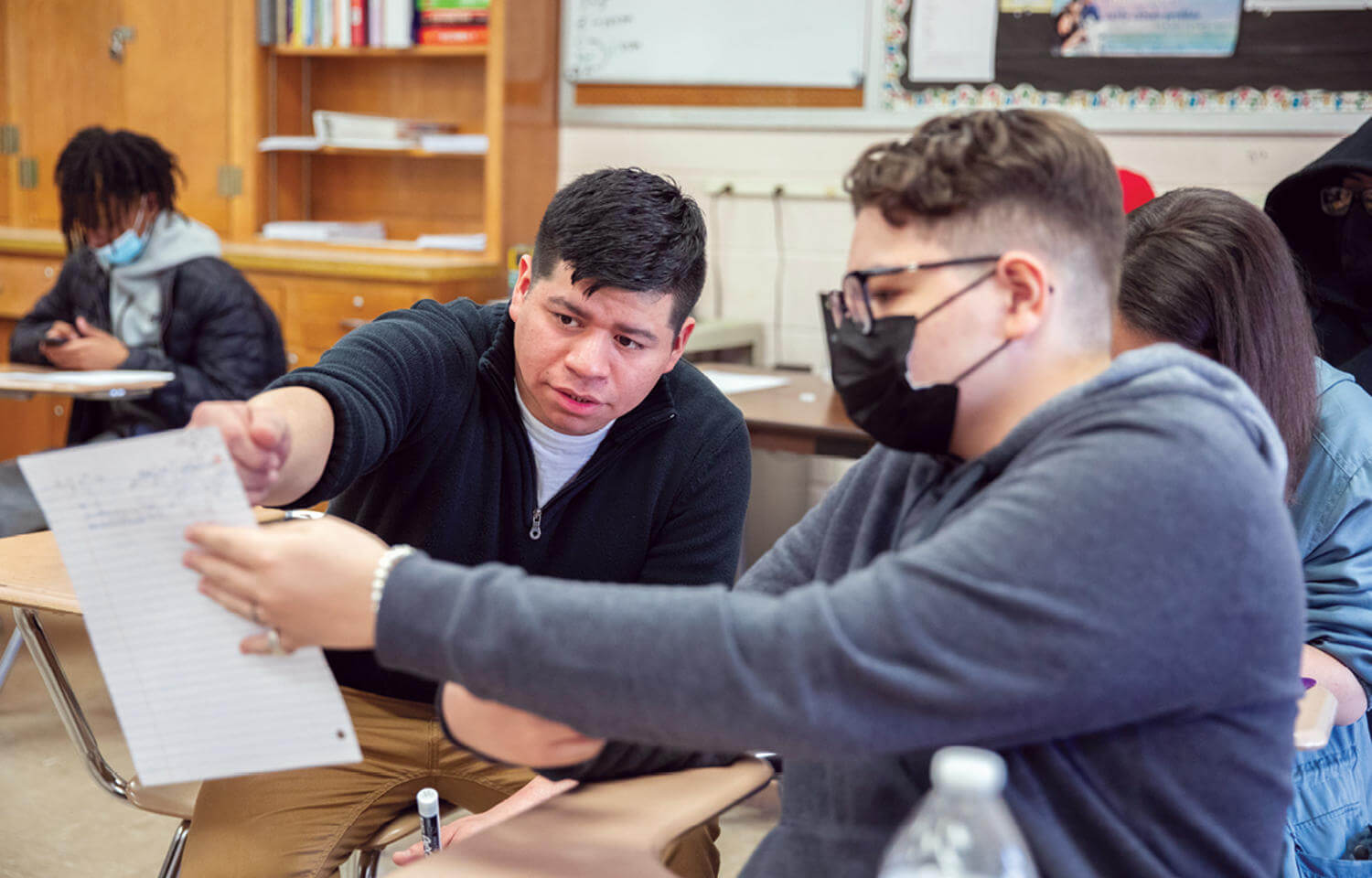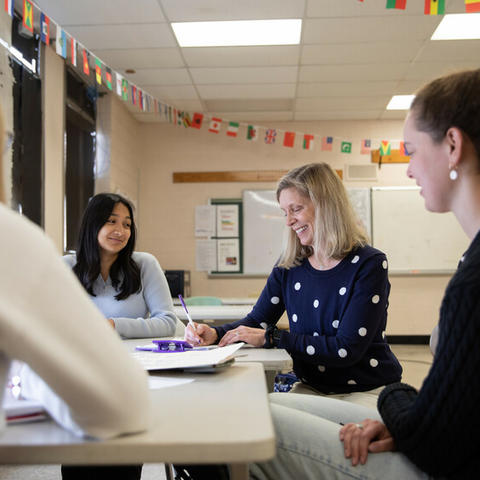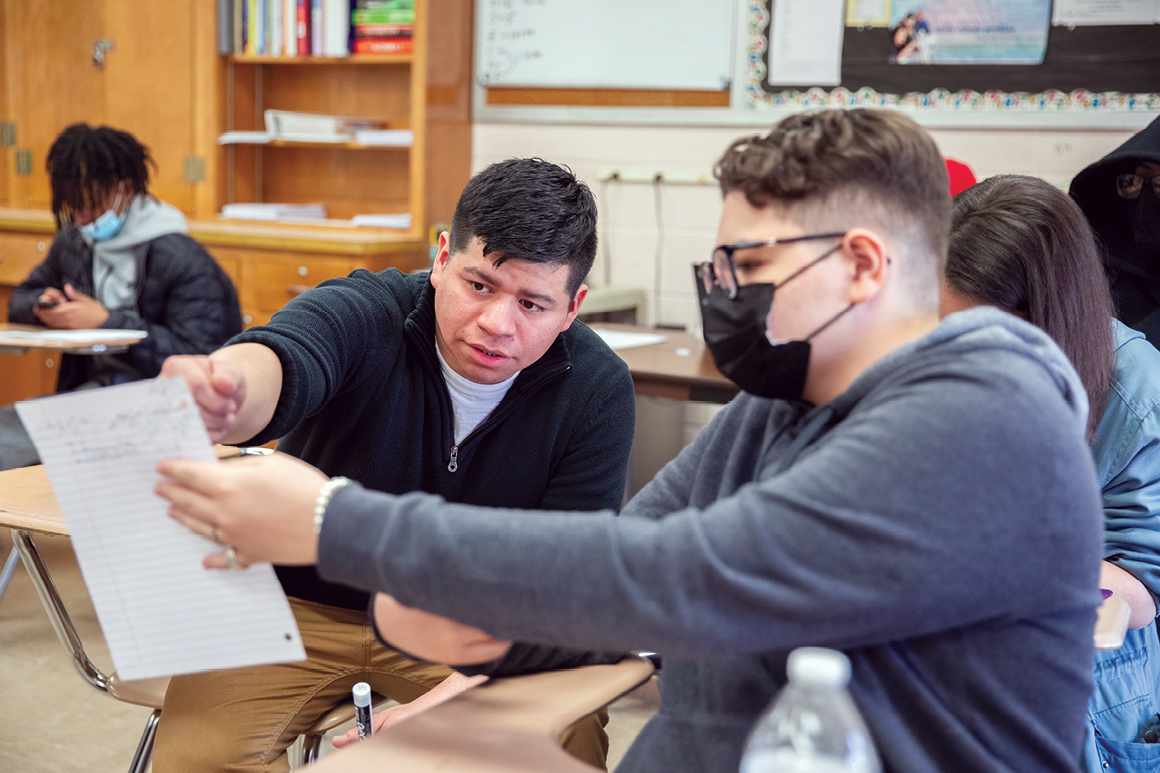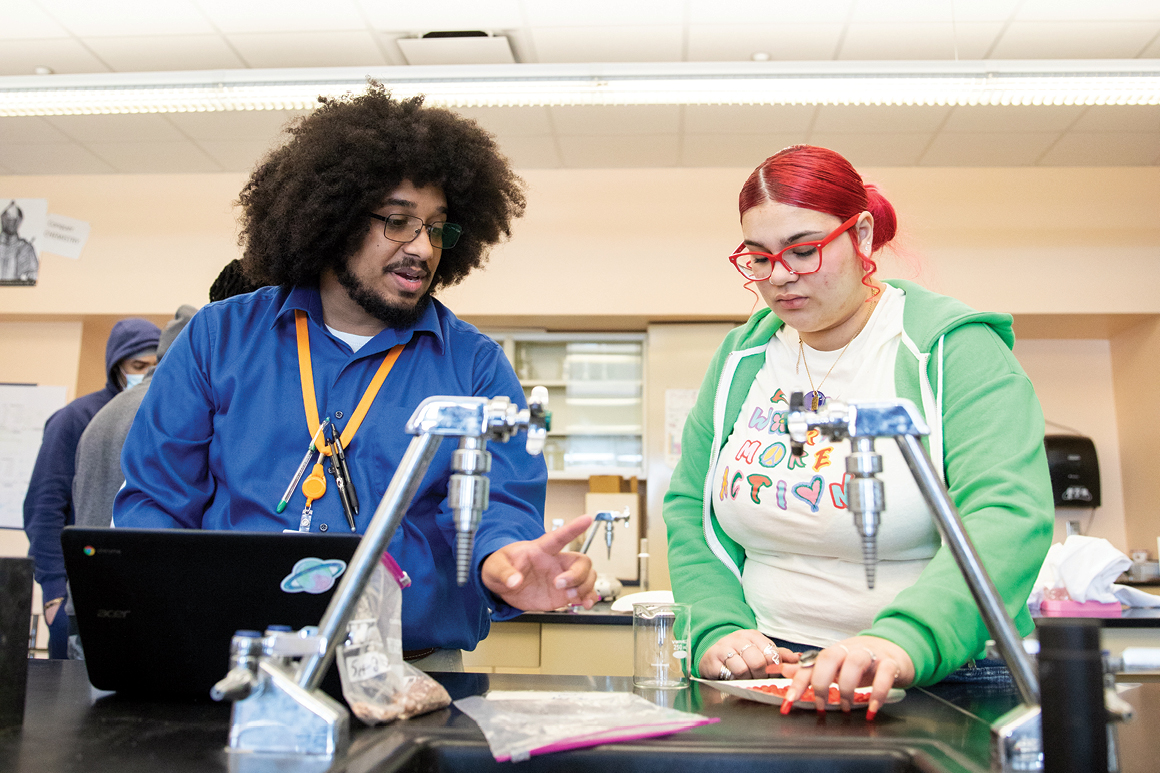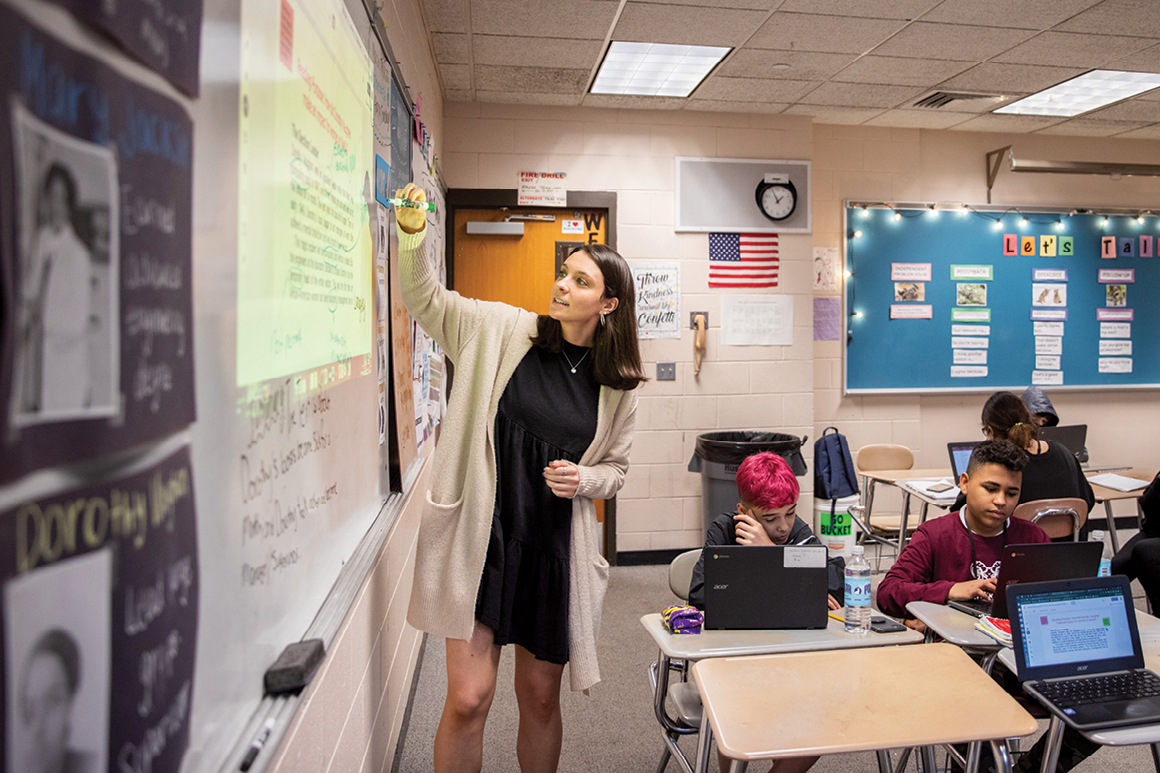Josh Delgado '15 (math) and LaurenDelgado '16 (English), Burncoat High School
Lauren Delgado came to Holy Cross knowing she wanted to teach. But for Josh Delgado, an education course with Fisher inspired him to switch his focus from engineering to education. "Professor Fisher's attitude in that class was just brilliant. She was so passionate about what she was teaching," says Josh, who joined TEP, majored in math and minored in education.
"TEP did a really good job at being upfront with the challenges [of teaching] and shaping our mindset," he says. Lauren, an English major and education minor, agrees: "As an example, a student might be facing homelessness, which is a reality for over 10% of our student population. But, the mindset is, 'How do you support them so they can get to the learning?' That's still something I think about all the time.
"TEP also emphasized that you need to know your students outside the classroom," she continues. "So, at least once a week, we go to something, whether it's a basketball game, art show, a play. I can think of multiple instances where it might have been difficult to make a connection with a student, then I went to their basketball game and we have had a great bond ever since."
Josh emigrated with his family from Peru to Lynn, Massachusetts, when he was 7. "Our students who came here from different countries, I can relate to them in that sense," he says. Sometimes this means tough conversations about leaving friends and family behind. Other times, it's swapping tips on where in Worcester to find favorite foods from home.
"Within the past month, we've enrolled 20 students who just moved here from Afghanistan, El Salvador, Brazil," Lauren notes. "Josh is one of the handful of teachers of color at the school in a very diverse environment. It's really important for the students to see him and have him as a mentor." Lauren, who grew up in Northampton, Massachusetts, says diversity is a "magical" part of teaching and learning in Worcester: "I went to a very good high school, but it wasn't as diverse and I missed out, growing up without that."
The Delgados are passionate about shattering urban education misconceptions. "Kids can grow when they feel safe, valued, loved and respected — like a human and not a statistic or a stereotype," Lauren says.
"A lot of these kids have to work jobs outside of school because they need to help out their families; it doesn't mean that school isn't important to them," Josh adds. "[It is our job] to find avenues for our students to be successful."
"Holy Cross emphasized all the time that you might be that person to recognize and value them, and see them for who they are," Lauren notes. "I keep thinking of 'men and women for and with others' — it was ingrained in TEP." She emphasizes that the rewards of teaching in Worcester are a two-way street: "I've learned so much about resilience, strength and grit from my students."
Gordon Burnett '12 (chemistry), North High School
Gordon Burnett, originally from Springfield, Massachusetts, majored in chemistry, minored in education and graduated from TEP ready to fulfill his lifelong dream to teach. He had plenty of options, but only one clear choice.
"When Worcester gave me the contract, I thought, 'I don't care what the other offers say. I'm going to be in Worcester because I fell in love with [North High],'" he remembers. "It's not just the physical location and students, it's the staff. They were welcoming right away to me as a student teacher and made the transition near-seamless." In fact, he now teaches in the room formerly occupied by his student teaching mentor, Carol Chandley, a veteran chemistry teacher, now retired. "I still use materials that I got from her," Burnett smiles, gesturing around his classroom.
